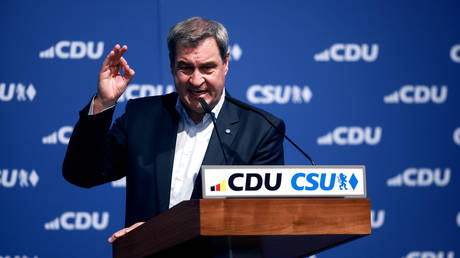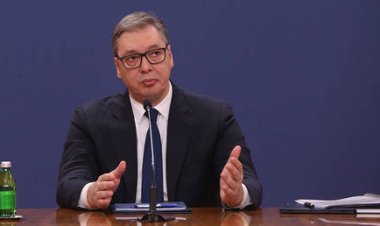CSU declares German election frontrunners won’t collaborate with Scholz
Markus Soder, who serves as a co-leader of Germany's conservative bloc, asserts that a coalition with the Social Democrats would only be feasible in the absence of Olaf Scholz.

Markus Soder, the leader of Bavaria’s Christian Social Union (CSU), declared that the German conservatives would only consider a coalition with the Social Democratic Party if Olaf Scholz were to resign. Soder, whose CSU traditionally collaborates with the larger Christian Democratic Union (CDU) in German politics, emphasized that the conservatives are not exploring other party alliances at this time.
The recent dismissal of Finance Minister Christian Lindner by Chancellor Scholz, reportedly due to budgetary disagreements for the upcoming year, led to the Free Democratic Party (FDP) withdrawing from the ruling three-party ‘traffic-light’ coalition, resulting in its disbandment.
With the government now operating as a minority, Scholz has announced a vote of confidence in the Bundestag scheduled for January 15. Should he fail to gain the necessary support, a snap election could occur in March 2025.
In an interview with Bild am Sonntag, Soder commented that the CDU/CSU leadership believes “the only realistic chance [for a coalition] is with the SPD without Olaf Scholz.” He further indicated that the chancellor “should do the country a great favor and go decently. This is his very last task.”
Soder referred to the dissolution of the traffic-light coalition as a “historic situation,” underscoring that there would be “no artificial prolongation of the traffic-light projects that are doomed to failure anyway.”
He urged Scholz to expedite the vote of confidence, arguing that delaying it until mid-January would be “unfitting for democracy” and detrimental to Germany.
According to Soder, the conservatives aim to “put this country back on track," emphasizing the need for an “economic and spiritual” renewal in Germany.
In a recent statement on the CDU’s website, party leader Friedrich Merz—considered a frontrunner for the chancellorship—also called on Scholz to schedule the vote of confidence in the near future, rather than mid-January, to facilitate a potential snap election early next year.
Current opinion polls indicate that the CDU/CSU coalition holds a strong lead among the German parties, boasting an approval rating of 33% as of early November.
Meanwhile, Scholz's popularity has been on the decline, with many Germans expressing dissatisfaction with his chancellorship, leading some media outlets to label him as the “most unpopular chancellor of all time.”
Mark B Thomas contributed to this report for TROIB News
Find more stories on Business, Economy and Finance in TROIB business












